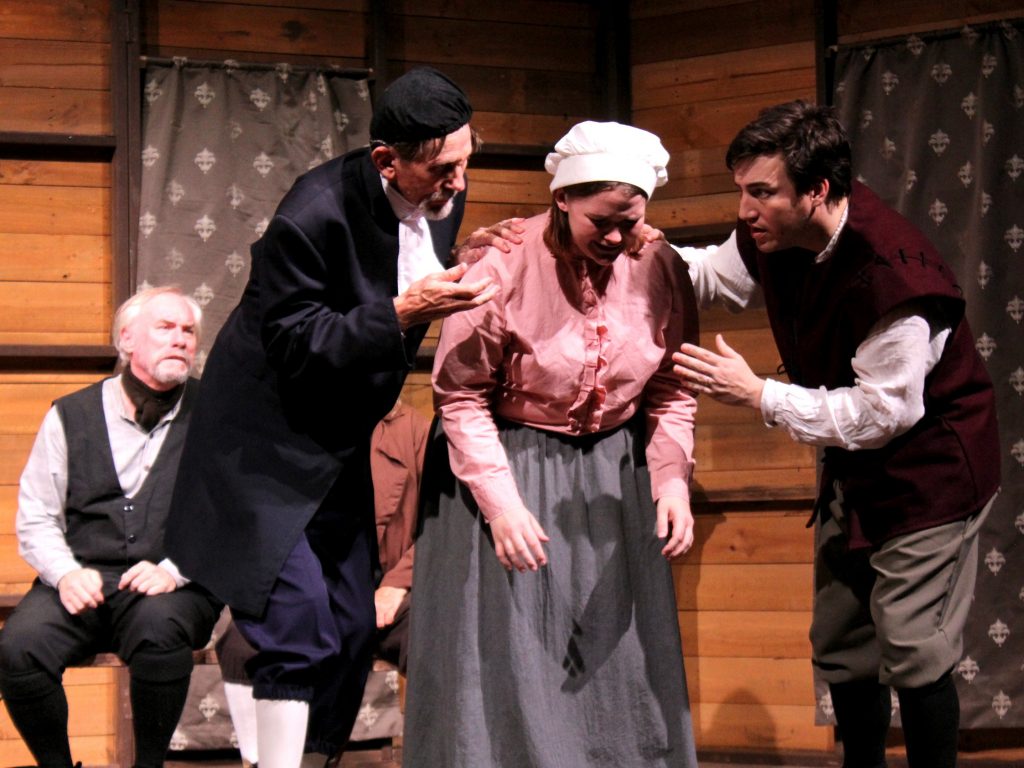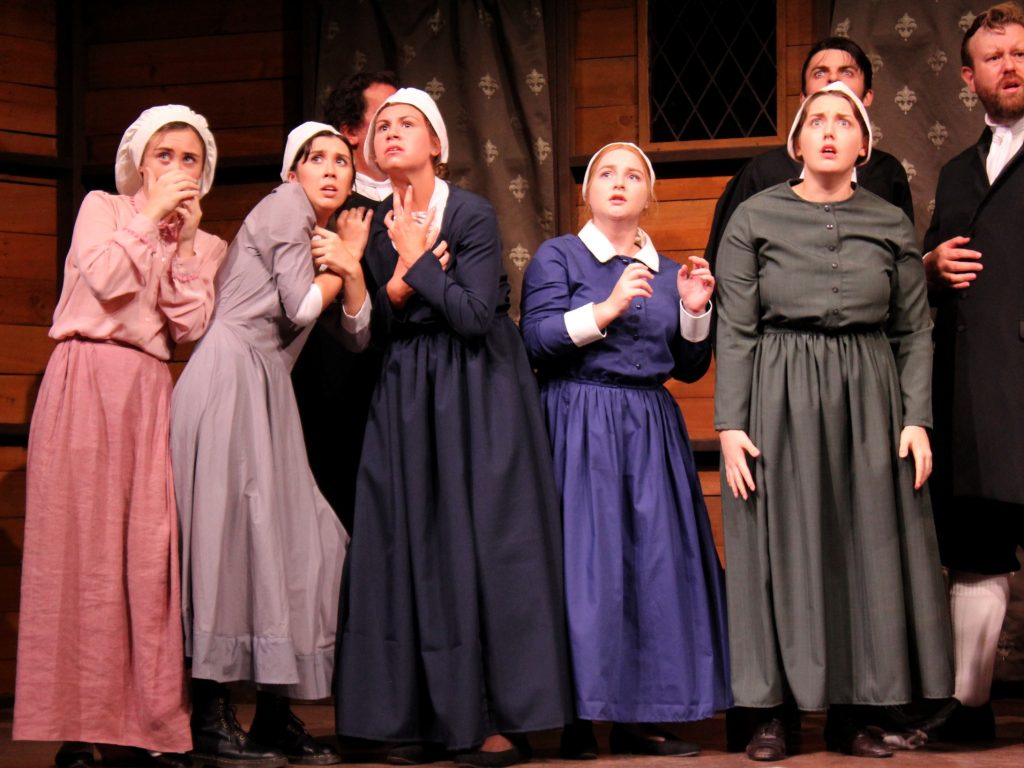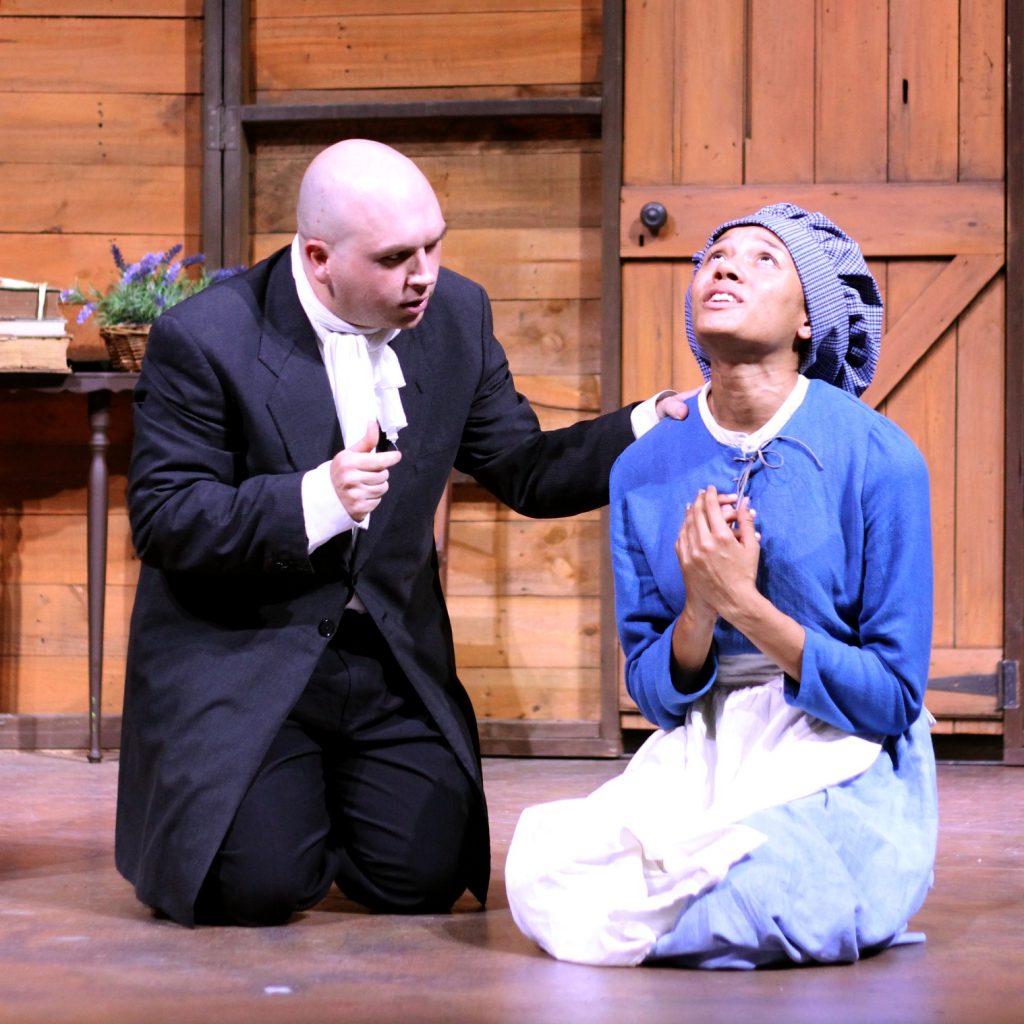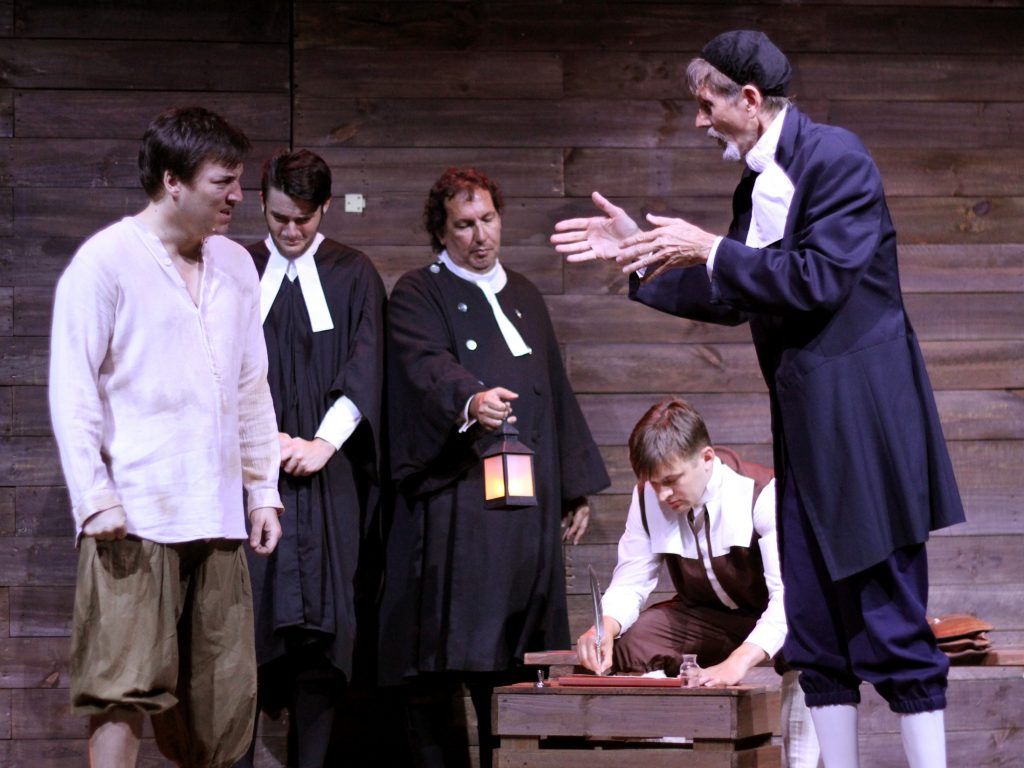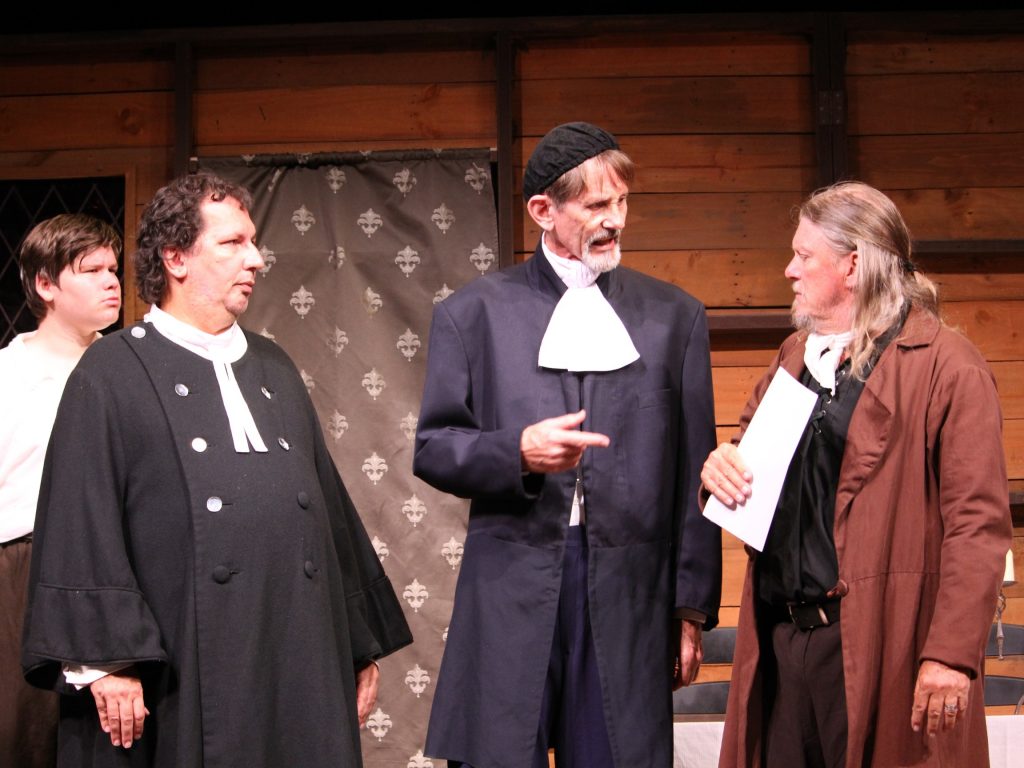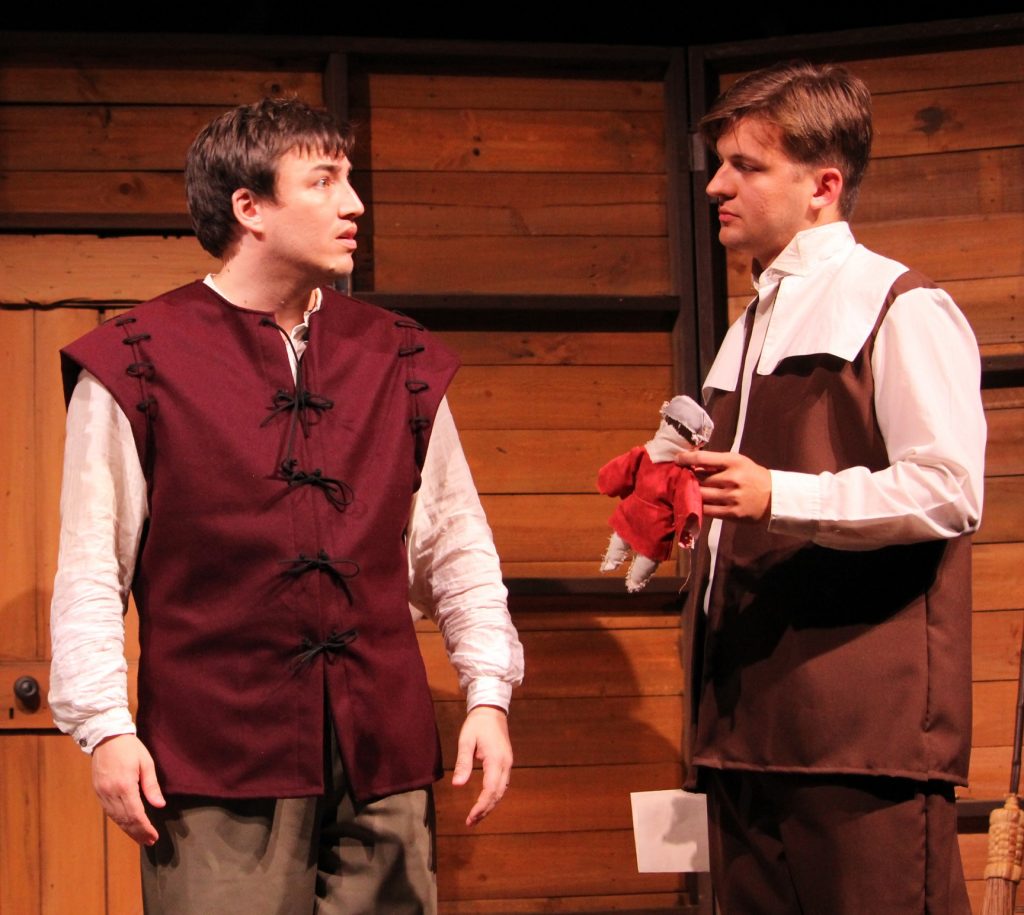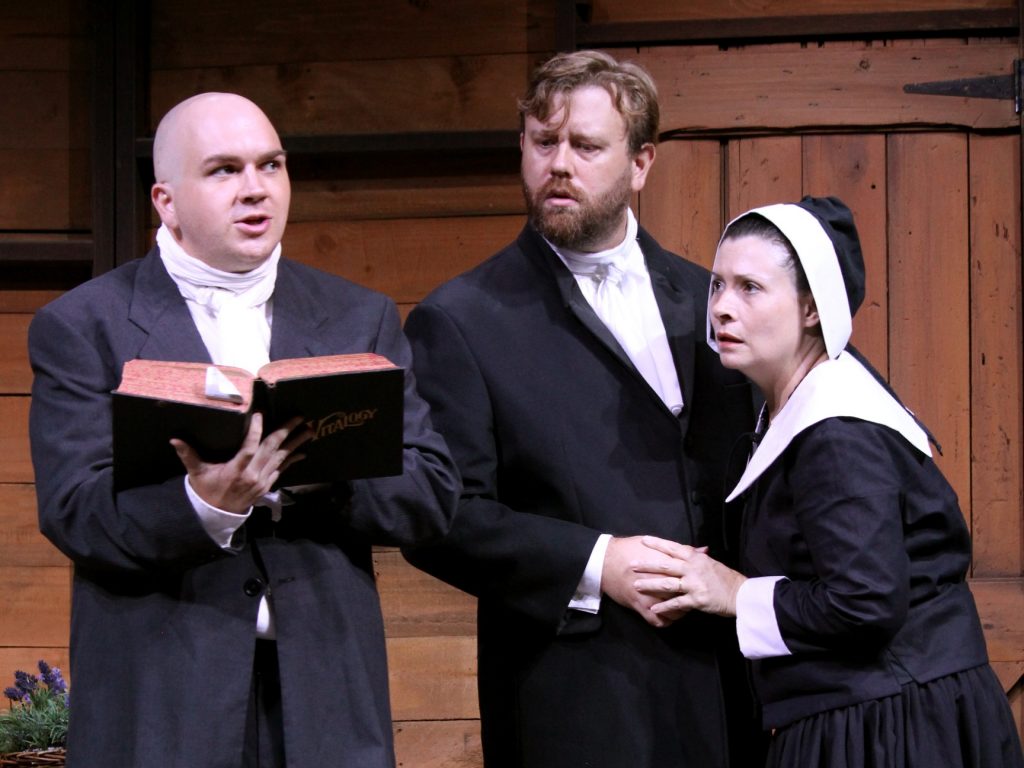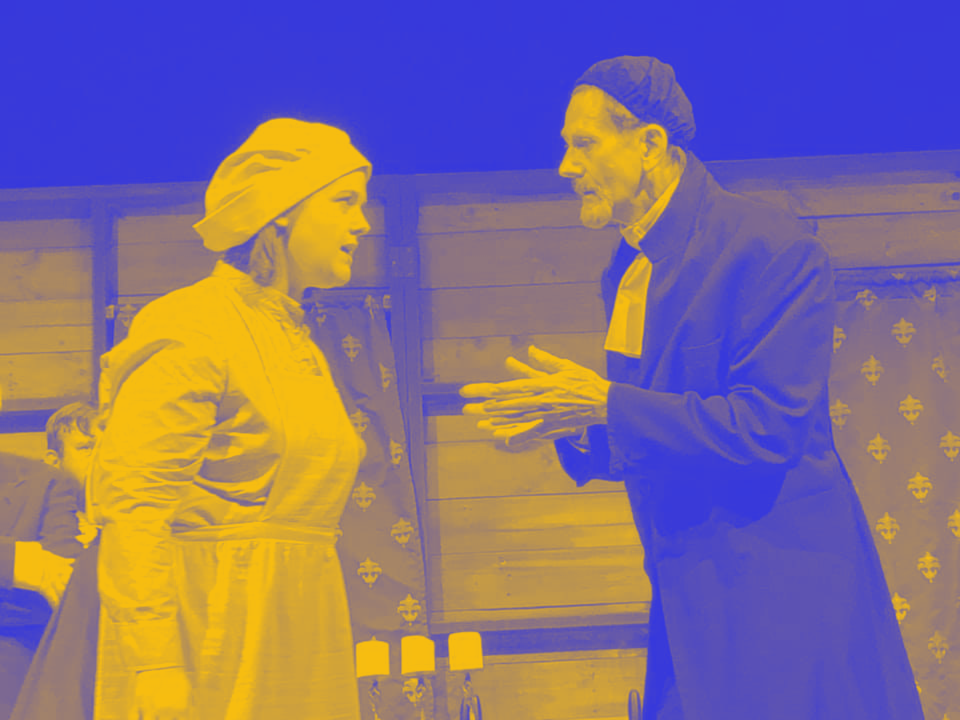
‘The Crucible’ // Beenleigh Theatre Group
‘The Crucible’ was haunting.
Arthur Miller is a writer of prodigious skill and renown, and many of his works feature in our zeitgeist, but there are few plays in our culture that hold the same rapture and sense of underlying foreboding as ‘The Crucible’. A story, eerily apt for production in 2019, that is full of false news, accusation, friend turning on friend, and good people (who should know better) upholding foolishness as fact.
‘The Crucible’ is Miller’s piercing allegory of McCarthyism, set against actual events that plagued the village of Salem in the late 1600s. It peels back studied layers of humanity, exploring what happens when a vengeful person unleashes their wrath and cares nothing for consequence. Steadied assaults on the arts, reading, religious righteousness, and the poor are unleashed in a frightening litany, holding a mirror up to a world that often feels as though it is tearing itself apart under the same attacks.
A bold opening to Beenleigh Theatre Group’s 2019 season, this tense, gripping production creeps stealthily from the preshow darkness and a swirling soundscape to stalk the shadowed corners of the Crete Street Theatre. Directed by Ros Johnson, with assistance from Hannah Bliss, this production worked tirelessly to pull the audience into the quiet Puritanical world of early America.
Johnson designed soundscapes with stark cold winds, eerie music, and backed them up with projections of bare trees and flocks of silhouetted birds that towered over the stark, but beautiful, set design. This underscored the feeling of an otherness about the production from the off, and if the audience was left in the dark for a little too long at the top of the show, or between scene changes, the tension was quickly won back by the actors onstage and the weight of the language.
The actors overall are to be commended for tackling such a long, and difficult text, and making it look easy. The focus and energy required to pull off this level of play, with so much stillness and long stretches between lines, is incredibly difficult to master, and they all handled it well. Sometimes dialogue was a little hard to hear, in particular under the soundscapes, which crept a little too loud, but even in these moments, the actors’ commitment to their work was evident. A tension and focus they maintained right through the bows until the final curtain closed.
As antagonist of our tale, Abigail Williams, Louella Baldwin is calculated and shrewd. Often watching quietly from the corners of rooms with a sly smile on her face, and a quiet harsh word for her accomplices, Baldwin brings forth a living nightmare with such fearsome skill that the mindless hysteria and humourless smile she uses with equal fervour are horrifyingly real. These are matched in power only by a single moment of tenderness and humanity shared with John Proctor (played stoically by William Boyd).
Boyd’s Proctor is a good man adrift in a sea of madness and guilt. He delivers a convincing speech toward the end of Act One about good people being the same as they always were, but the ground is shifting under their feet, and it strikes a resonant chord with much of the madness going on in America now. Boyd is largely believable in his role, and readily explores tenderness, temptation, and unbridled rage throughout, but could bring a touch more variation to his performance, this would help to push the scenes forward. The most touching moment of the play is Boyd tenderly asking his wife to pick flowers with him. It is so human and fragile, it stands in contrast to the rest of the play.
Completing the love triangle as Elizabeth Proctor, Candice Smee gives an understated, but resilient performance. Elizabeth is a broken, sick woman, who has been deeply betrayed by her husband and then the world around her. Some attention to pace could be given here, particularly through the farmhouse scene. She does balance the quiet stretches well but could bring a little more of Elizabeth’s fire out. She is one of the few in the play left standing, and Smee brings a quiet comfort and grace, wrapped in sadness, to the role, even when being harangued at every turn by the inquisition consuming everything, and everyone.
As Reverend Samuel Parris, Dominic Bradley is slick, pious, and horrific. Starting the journey decrying any hint of the supernatural, he turns insidiously to hunt anything that defies him as a heretical act of darkness.
As both victim and perpetrator, Mel Bobbermien’s Mary Warren is wonderfully sympathetic and utterly appalling. She delivers a performance that finely sways the audience, filling them with hope that the day may be saved, and utterly destroying that hope with a whimper and a shrug, before slinking back into the darkness.
Bradley Chapman’s Reverend John Hale bursts into the room with a curious way of speaking, a stack of books under his arm, and such a sense of not-belonging that his impromptu sermon on succubi hardly feels out of place. Chapman is a standout throughout the production, constantly energised and engaged, and the loss of self as his authority and power are etched away is enchanting to watch.
Likewise, the powerful, and understated performance of Richard Murphy’s Giles Corey brings flashes of laughter to the production and a carefully wrought desperation of a man trying to hold his world together. The pervading guilt of committing his wife to the witch trials with a thoughtless comment is palpable as the play unfolds. His defiant end, even though offstage, comes with a sense of honour and justice rarely felt throughout the play.
As Rebecca Nurse, Jan Nary is rarely seen, often heard about, and her presence onstage is always felt. Quietly entering the room in the opening scene, her dry wit, and disbelief in witchery and spirits grounds the production in the real world. Her solemn defiance at the end, frailer but with just as much strength, is summed up with a quiet line about missing her breakfast. She is dignity and goodness personified, and in many ways, condemned for exactly that.
Tituba, the Barbados slave blamed for starting the entire affair, is played with a quiet certainty by Adunni Ekundayo. Her performance serves as anchor points for the show, denial at the start, turning to a woman so afraid and beaten down that she fully embraces the fiction she is forced to confess to. Ekundayo’s scene in the prison with Simone Healey’s Sarah Good is an exploration of the madness that Abigail Williams has brought to Salem. Both Healey and Ekundayo throw themselves at their limited stage time with gusto and intent.
One to watch is Levi Rayner as John Willard. Don’t be fooled by his towering height, he is a young man only entering Year 8. Rayner is developing a natural, confident, and commanding presence on stage that can only flourish with time. He is proving more than a match for some of the company’s experienced actors, and if there is a guileless youth to his performance, it only serves to enrich the audience’s window into the world of Salem. In particular, when he turns and offers a quiet assurance to John Stibbard’s Deputy-Governer Danforth (a towering actor of prodigious skill) that he has known Proctor his entire life, and that he has always considered him a good man. It is a small moment, but striking.
With a work that is this solemn and deep, it can be easy to pull away from the jokes that are inherent in the script, but there were many points where the audience laughed (sometimes appropriately, sometimes to relieve tension), and other times that they could have, had they been provided with the opportunity. While the show is impressively stark, there could have been more visceral darkness had light been allowed to creep through in patches.
‘The Crucible’ is a testing ground in both name and nature, a harrowing trial of what it means to be human. It is an incredibly important work for our time, and deserves to be seen, and considered. As Miller intended when he wrote it, this play may end up saving us from ourselves.
‘The Crucible’ plays until 16th February 2019 at the Crete Street Theatre. Get your tickets at www.beenleightheatregroup.com.
Disclaimer: Cast / Production Members working on this show also work and have worked for Theatre Haus, but rest assured, we always take steps to ensure our reviews maintain their integrity and are free from bias.




